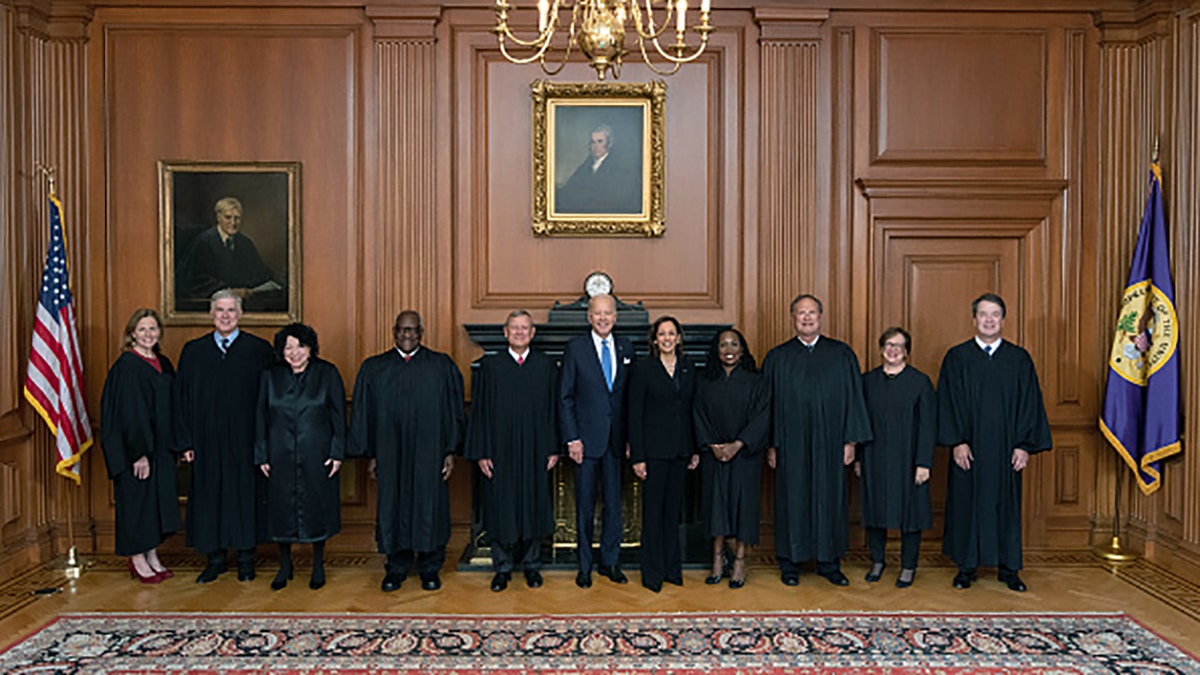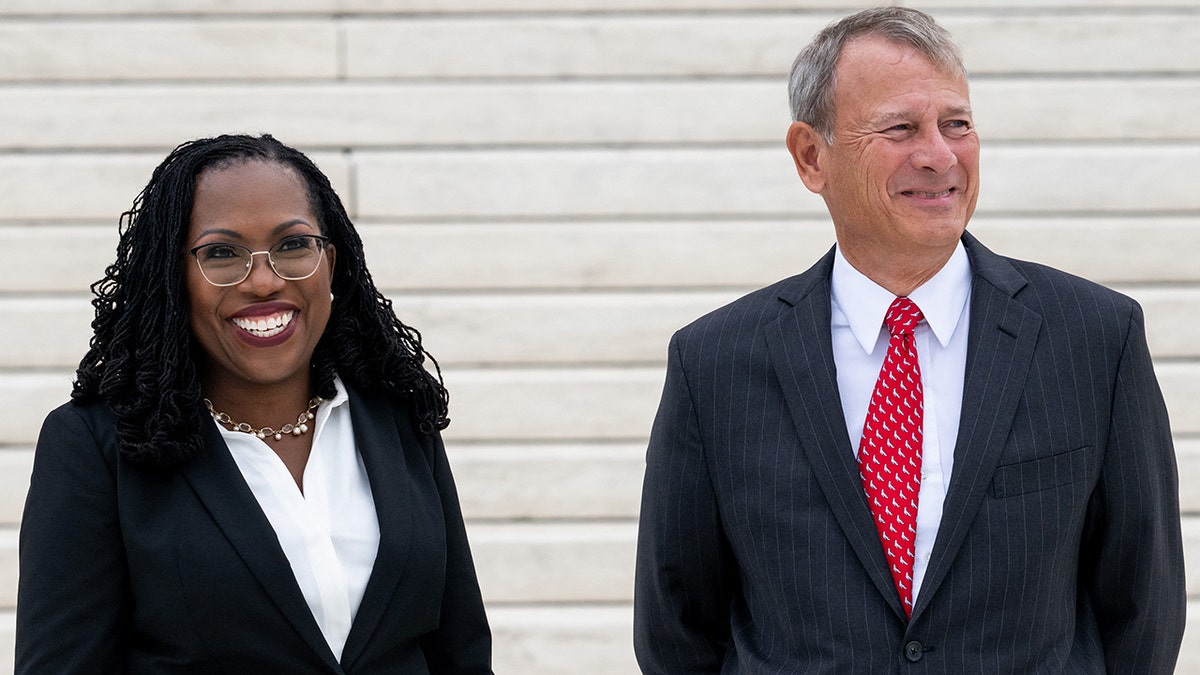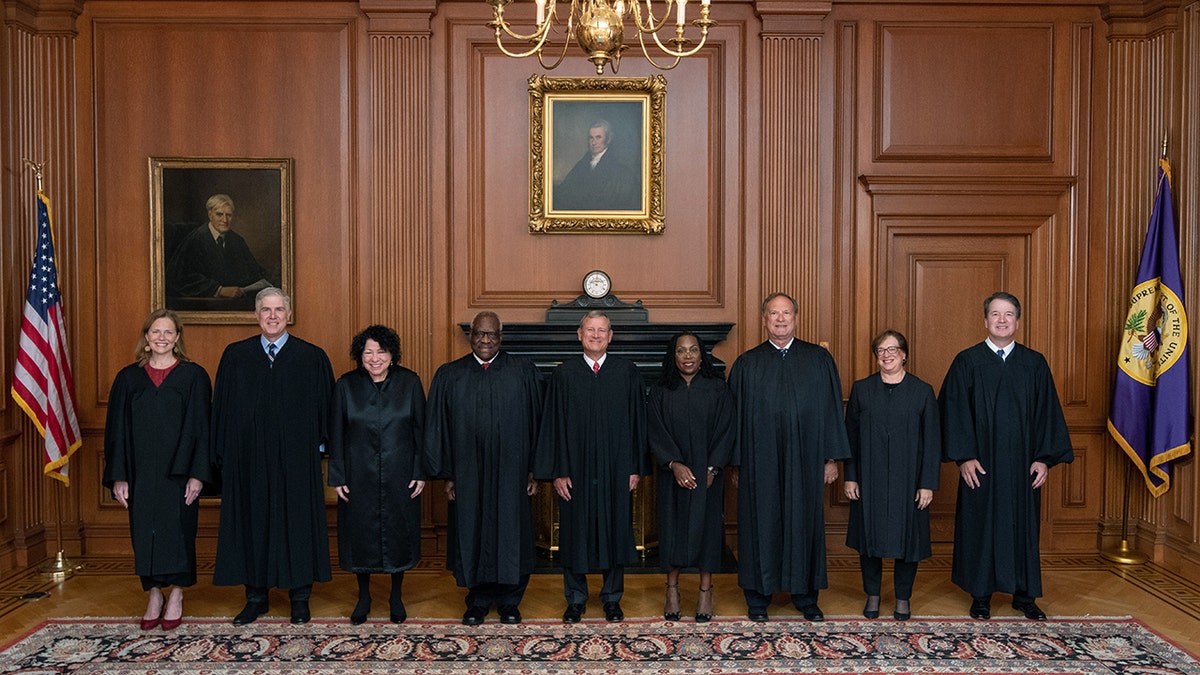Fox News Flash top headlines for October 3
Fox News Flash top headlines are here. Check out what's clicking on Foxnews.com.
The U.S. Supreme Court on Monday declined to hear a challenge to the federal vaccine mandate for healthcare workers.
On its first day back in session, the Supreme Court declined to hear an argument from Missouri as well as nine other states -- Nebraska, Alaska, Arkansas, Iowa, Kansas, New Hampshire, North Dakota, South Dakota and Wyoming -- opposing the COVID-19 vaccine mandate implemented by President Biden’s administration for workers in all healthcare facilities that receive federal funding, Reuters reported.
Biden implemented the rule in November 2021.
In January, the Supreme Court ruled in a 5-4 decision to allow Biden’s vaccine mandate to continue as arguments played out in lower courts. Chief Justice John Roberts and Justice Brett Kavanaugh joined the liberals to form a majority.
SUPREME COURT KICKS OFF NEW TERM WITH ORAL ARGUMENTS

From left to right, Associate Justices Amy Coney Barrett, Neil M. Gorsuch, Sonia Sotomayor, and Clarence Thomas, Chief Justice John G. Roberts, Jr., President Joe Biden, Jr., Vice President Kamala Harris, and Associate Justices Ketanji Brown Jackson, Samuel A. Alito, Jr., Elena Kagan, and Brett M. Kavanaugh pose at a courtesy visit in the Justices Conference Room prior to the investiture ceremony of Associate Justice Ketanji Brown Jackson September 30, 2022. (Collection of the Supreme Court of the United States via Getty Images)
In April, the St. Louis-based 8th U.S. Circuit Court of Appeals sent the case back to a federal judge to proceed to a trial, but Missouri then appealed to the Supreme Court.
The justices turned away the appeal on Monday.
The mandate covers virtually all health care workers in the country, applying to providers that receive federal Medicare or Medicaid funding. It affects 10.4 million workers at 76,000 health care facilities as well as home health care providers. The rule has medical and religious exemptions.
Biden said that decision by the court in January "will save lives."

U.S. Supreme Court Justice Ketanji Brown Jackson speaks with Chief Justice John Roberts on the steps of the US Supreme Court, following her investiture ceremony in Washington, D.C., September 30, 2022. (SAUL LOEB/AFP via Getty Images)
In an unsigned opinion, the court wrote: "The challenges posed by a global pandemic do not allow a federal agency to exercise power that Congress has not conferred upon it. At the same time, such unprecedented circumstances provide no grounds for limiting the exercise of authorities the agency has long been recognized to have." It said the "latter principle governs" in the healthcare arena.
Justice Clarence Thomas wrote in dissent that the case was about whether the administration has the authority "to force healthcare workers, by coercing their employers, to undergo a medical procedure they do not want and cannot undo." He said the administration hadn’t shown convincingly that Congress gave it that authority.

In this handout provided by the Collection of the Supreme Court of the United States, members of the Supreme Court from left to right shown are Associate Justices Amy Coney Barrett, Neil M. Gorsuch, Sonia Sotomayor, and Clarence Thomas, Chief Justice John G. Roberts, Jr., and Associate Justices Ketanji Brown Jackson, Samuel A. Alito, Jr., Elena Kagan, and Brett M. Kavanaugh. (Collection of the Supreme Court of the United States via Getty Images)
At the same time, in January, the justices ruled in a 6-3 decision to stop the Biden administration’s requirement for vaccines or weekly COVID-19 tests for employees at businesses with at least 100 employees. The court’s conservative majority concluded the administration overstepped its authority by seeking to impose the Occupational Safety and Health Administration’s vaccine-or-test rule.
CLICK HERE TO GET THE FOX NEWS APP
The OSHA regulation had initially been blocked by a federal appeals court in New Orleans, then allowed to take effect by a federal appellate panel in Cincinnati.
The Associated Press contributed to this report.





